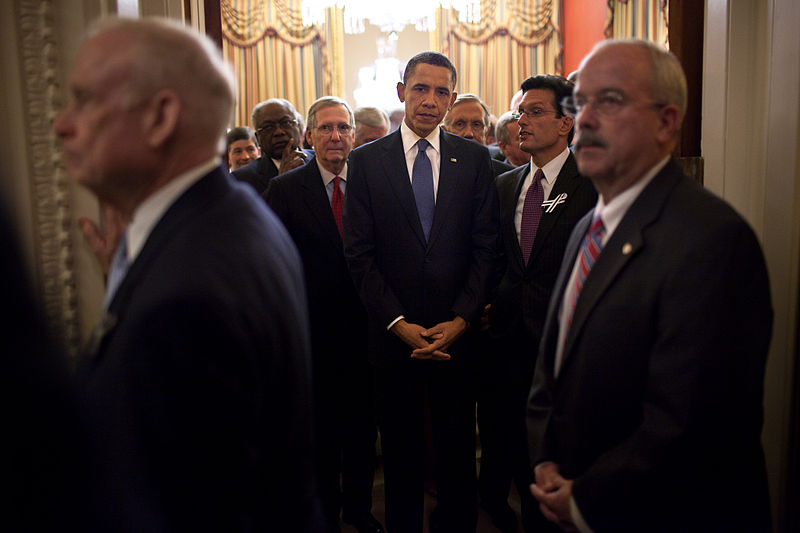The State of the Union: Political Maneuvering with Little Policy Substance
BY ALEX TOLKIN
The president’s State of the Union address was once a dry written report on the current challenges facing the nation and his plans to address those challenges. Now, however, the State of the Union has become a political pageant in which the president attempts to use his influence to sway Congress to his vision of the future. Some of the most famous policies in U.S. history such as the Monroe Doctrine and War on Terror were first laid out in State of the Union addresses.
President Obama’s 2013 State of the Union featured the expected soaring rhetoric and bold policy proposals. But which of these proposals actually has any chance of being implemented and which were empty promises?
The most dramatic part of the address was Obama’s impassioned plea for gun control, when he listed community after community that had been shattered by gun violence. “They deserve a vote” cried Obama, but he didn’t reveal details of what would be voted on. Given the difficulty of passing gun control legislation, Obama’s vagueness on this issue is a logical approach. If gun control legislation does pass, Obama can take some of the credit. If gun control legislation fails, Obama can blame Republicans. Most Americans support gun control, so Obama can suppress Republicans if they block legislation. On the other hand, the lack of specificity in Obama’s proposal indicates that he is not particularly confident about gun control legislation passing. A specific proposal would be more likely to pass, but Obama would receive more blame if the legislation failed.
While his argument for gun control was stirring, Obama’s most significant and surprising proposal was his plan to increase the federal minimum wage to $9.00 per hour. The issue is polling well, and if Republicans oppose the raise they will only further a negative perception that they only care about the wealthiest Americans. Republicans appear to be planning to fight such legislation however, which may indicate that Obama either overestimated the odds of passing the legislation or merely wants to use it as a political tool. Perhaps it will be passed as part of a compromise.
Obama’s call for comprehensive immigration reform, including a path to citizenship for illegal immigrants, has the greatest chance of actually becoming law. Such legislation would have been contentious a year ago, but the 2012 election may have finally convinced Republicans that Hispanics are now too strong a political force to defy. Republicans are desperate to stop hemorrhaging Latino voters, demonstrated by their decision to present a rebuttal to Obama’s speech in both English and Spanish.
Much of the speech was more of a wish-list than a set of realistic policy proposals. The most interesting albeit unrealistic proposal was Obama’s call for increased action on climate change. Obama’s first term was a disappointment for many environmentalists who were longing for a drastic contrast to the Bush years. However, Obama used his second inaugural address to call for a serious push to combat climate change. Any major initiative is likely to be derided by opponents as detrimental to the economy. Given the continuing economic doldrums, the American people are also likely to reject this legislation. Still, its prominent appearance in the State of the Union may be a sign that the Obama administration thinks climate change is a winning political issue, even if they don’t do much about it.
On the other side of the aisle, the Republican response to the State of the Union was something of a disappointment, and demonstrated some of the problems currently facing the party. First, there were actually two responses, one from mainstream Republicans and one from the Tea Party. Divisions within the Republican Party may have cost it the Senate in 2012, and the dual responses were a symptom of continuing fissures. The mainstream response, delivered by Marco Rubio, was frustratingly similar to Republican talking points in the 2012 election. It is unclear why Republicans are continuing to endorse policies that failed a year ago; perhaps Republican strategists think all the blame for their defeat in 2012 falls on Mitt Romney’s shoulders. Regardless, Rubio’s performance was lackluster, a poor omen if he is to be the Republican nominee in 2016.
Overall, Obama used the 2013 State of the Union to try to push popular policies and damage Republicans politically if the policies are not enacted. With Congress still stuck in deadlock, he could hope for little more.
